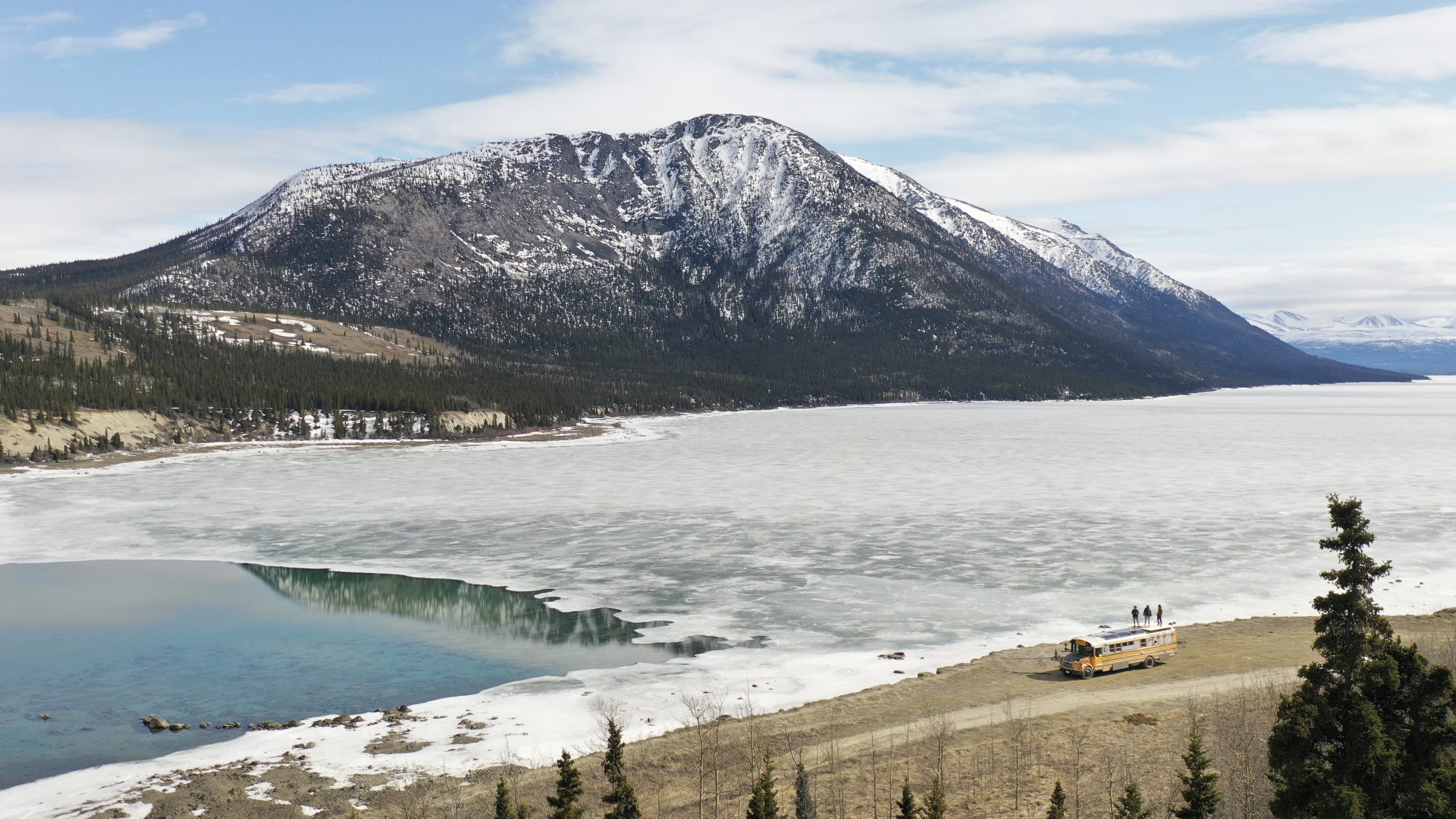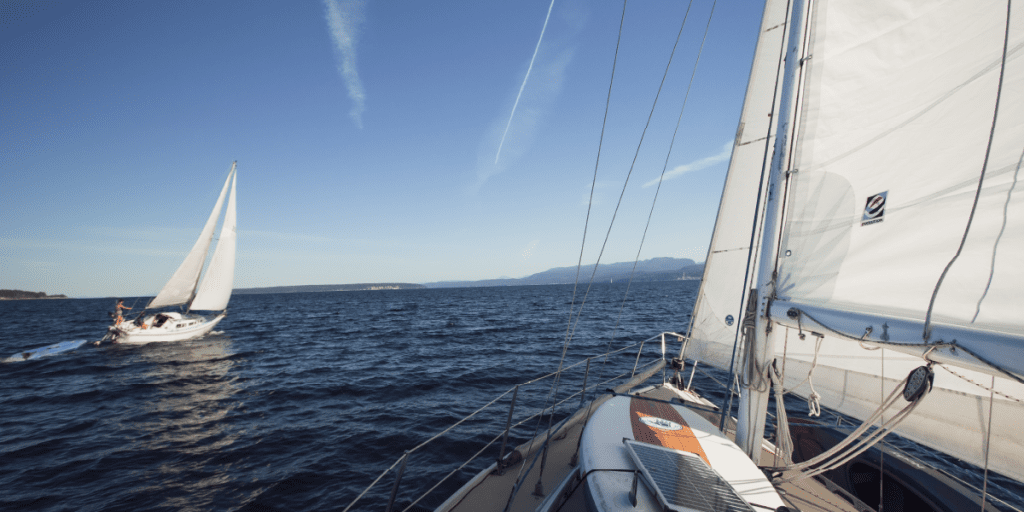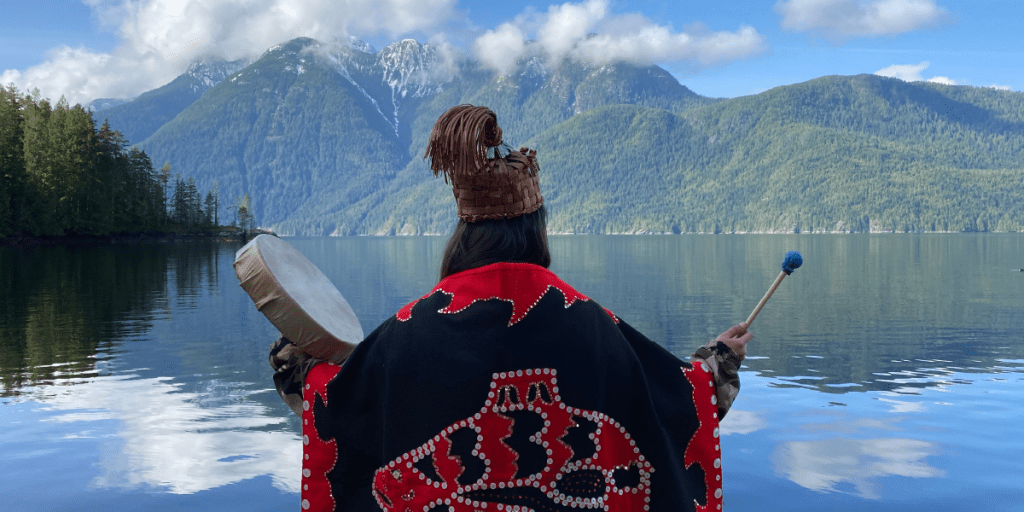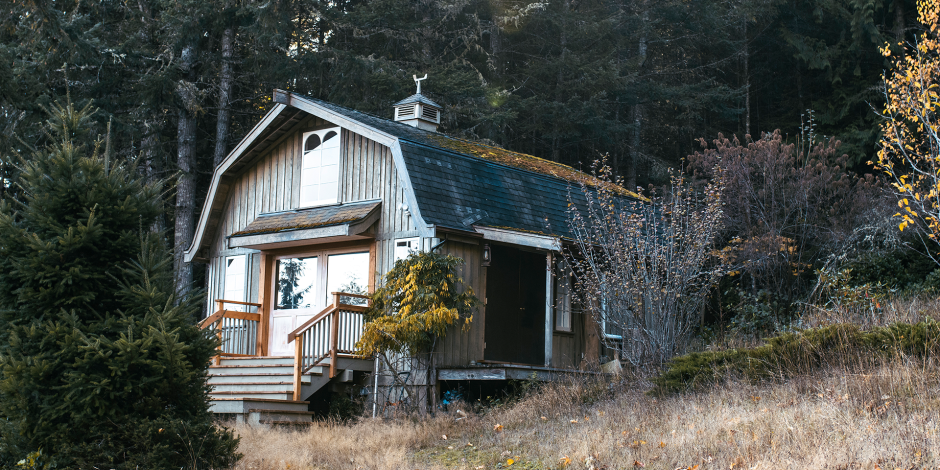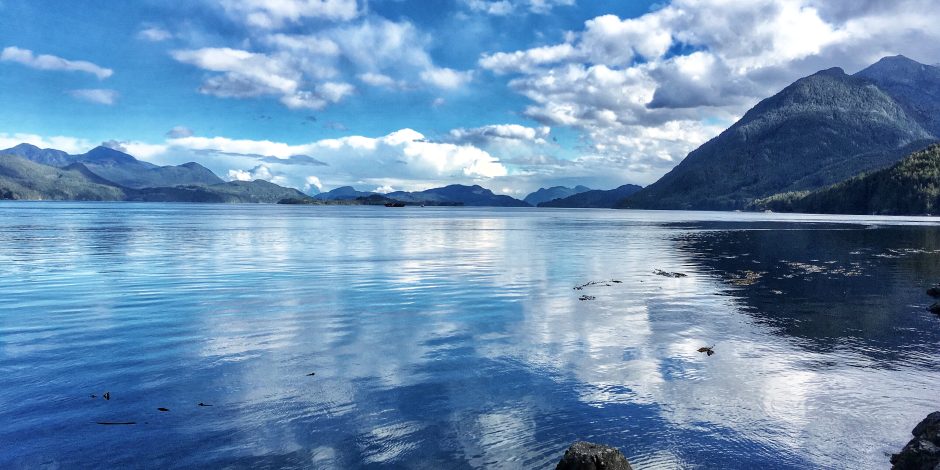Wanderlust. We’ve all heard of it, and many of us dream of packing a bag and heading out into the wilderness for life changing adventures.
For film producer and director Louisa Gilbert, converting a school bus into a wilderness-roaming home and film production unit started as a means to immerse herself in natural history stories. After years of working in the film and television industry, travelling extensively and, admittedly, unsustainability, to film shoots around the globe, a visit to beautiful British Columbia sparked Louisa to rethink her lifestyle and find a way to refocus and concentrate on creating films at a local level. And so, Wild Bus Films (WBF) was born on Vancouver Island with the intention to promote local alternatives to international film production.
Converting a 40-foot school bus into a production unit
After a year of searching for, planning, and then renovating the perfect type of bus, the “Wild Bus” was ready to live and work in, allowing Louisa and her drone operator partner, Kai White, to take remote work to a whole new level. The 40-foot school bus, originally from School District 69 (Qualicum), was reimagined into an off-grid mobile production unit, allowing small film crews to embed in remote and wild locations and capture unique stories.
It didn’t take long for this humble back-of-a-bus business to turn into a global production company that contributes to some of the most ambitious science and natural history series seen on our screens today.
Louisa and Kai live and work from the bus while researching and producing stories from the field. Designed to function in remote locations with flexibility, the bus allows them to take on prolonged shoots in just about any environment. Fully winterized with solar power, high ground clearance, cell boosters, and communication radios, the bus easily drives into stories in far-flung locations. It’s built to take on all weather conditions, but it has not been without its challenges; frozen pipes, heavy snow storms, and curious bears circling the bus after catching the enticing scent of Kai’s chocolate pecan pie birthday cake.
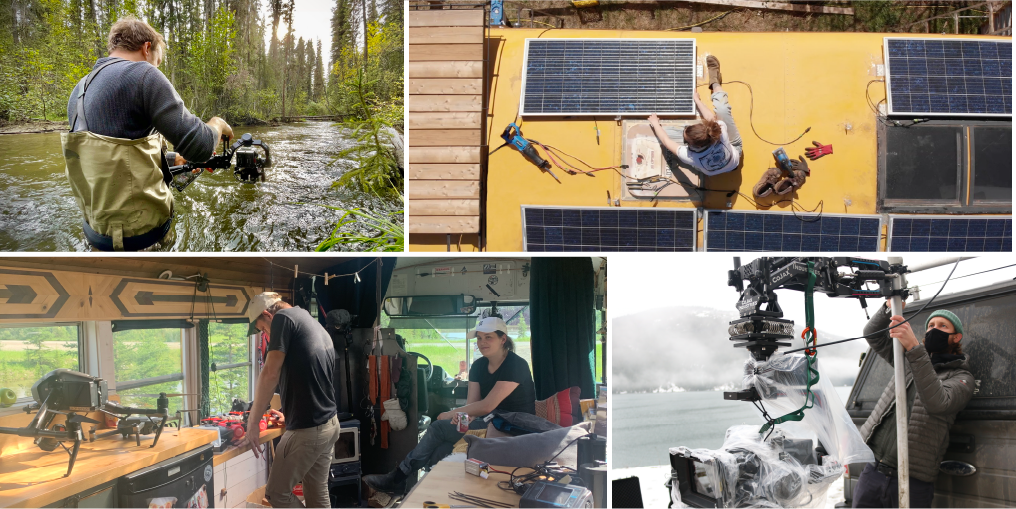
PHOTOS BY LOUISA GILBERT & KAI WHITE
The growth of Wild Bus Films
Since its humble beginnings in 2019, the team at WBF has grown to a network of talented individuals based across the Pacific Northwest. They have quickly become the go-to film service for unscripted science, adventure, and natural history programs. To date, WBF has collaborated with some of the biggest names in the industry, developing and producing content for major international series for BBC Natural History Unit, National Geographic, Netflix, Disney+, AppleTV, PBS, and more.
Alongside producing landmark series for today’s major channels, Wild Bus Films’ independent productions have collected international accolades from festival circuits. Passionate about on-the-ground science and local storytelling, they have produced the award-winning films “It’s Time to Listen” and “A Bear’s Necessities,” in partnership with Vancouver Island organizations OrcaLab and Hakai Magazine, in 2020 and 2021.
Today, Wild Bus Films has grown, establishing bases on Vancouver Island and in Vancouver, where a large part of film development and logistics are managed. The bus, along with their helicopter, plane, and boat partners, continue to support remote filming while adventure and a nimble footprint remain at the core of Wild Bus Films’ values. The expansion is a “pinch me” moment for Louisa that became possible with a team of dedicated crew.
As for the future, Wild Bus Films continues to produce stories set in wild places, as well as the communities that inhabit them. Their British Columbia roots and connection to the natural world remain paramount to the stories they support and tell.
This year will see the release of three new major series. Follow along on Instagram and Facebook to see where the bus takes them next.
Wild Bus Films acknowledges the traditional stewards of the land we are guests on and pledges to conduct our work with respect for the peoples, wildlife, and places we film.

